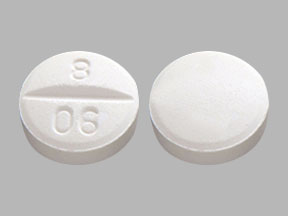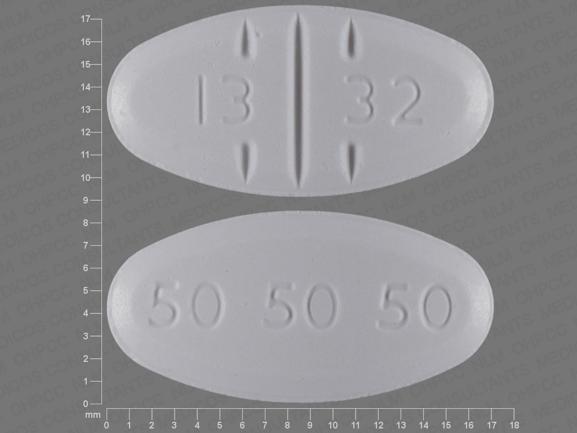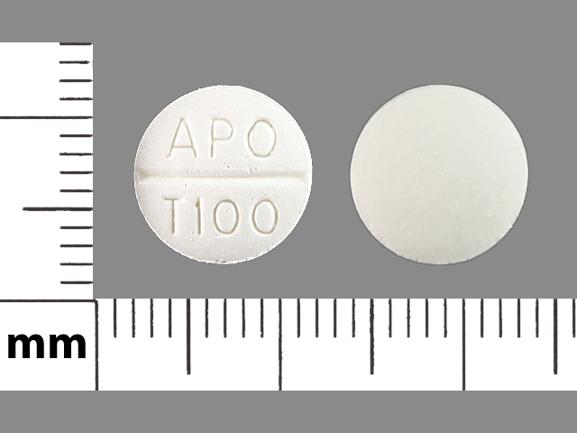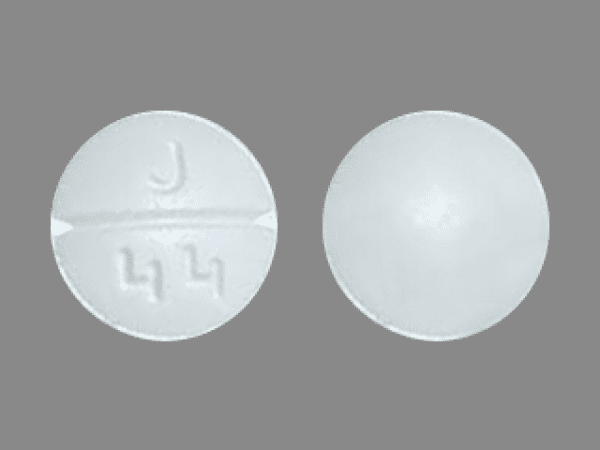Trazodone is used to treat major depressive disorder.



Trazodone is an antidepressant that belongs to a group of drugs called serotonin receptor antagonists and reuptake inhibitors (SARIs). While trazodone is not a true member of the selective serotonin reuptake inhibitors (SSRIs) class of antidepressants, it does still share many properties of the SSRIs.
Trazodone, an antidepressant in the serotonin antagonist and reuptake inhibitor (SARI) class, is commonly prescribed off-label for several conditions outside its original approval for major depressive disorder. The most notable off-label uses include:
- Insomnia: Trazodone is frequently prescribed at low doses to help with sleep disorders, due to its sedative effects.
- Anxiety: It is sometimes used to treat anxiety disorders, leveraging its calming properties.
- Chronic Pain: Trazodone may be used in combination with other medications to manage pain syndromes, especially those linked with sleep disturbances.
- PTSD and Panic Disorders: It has been utilized to help manage symptoms of post-traumatic stress disorder (PTSD) and panic attacks.
It may help to improve your mood, appetite, and energy level as well as decrease anxiety and insomnia related to depression. Trazodone works by helping to restore the balance of a certain natural chemical (serotonin) in the brain.
Trazodone Hydrochloride is primarily approved for the treatment of major depressive disorder, but it is also widely used off-label for several other conditions due to its pharmacological effects.
Here are some of the common off-label uses:
1. Insomnia:
- Primary Off-Label Use: Trazodone is frequently prescribed for insomnia, especially when it is associated with depression or anxiety. Its sedative properties make it effective for helping patients fall asleep and stay asleep.
2. Anxiety Disorders:
- Trazodone can be used to manage generalized anxiety disorder (GAD), social anxiety disorder, and other anxiety-related conditions. It helps reduce anxiety symptoms by increasing serotonin levels in the brain.
3. Chronic Pain:
- It is sometimes used as an adjunct treatment for chronic pain conditions, particularly when these are associated with sleep disturbances or depression. Trazodone may help improve sleep quality and pain perception.
4. PTSD (Post-Traumatic Stress Disorder):
- Trazodone is used off-label to help manage symptoms of PTSD, particularly insomnia and nightmares. Its calming effects can be beneficial for patients with this condition.
5. Fibromyalgia:
- Patients with fibromyalgia, a condition characterized by widespread pain, may benefit from trazodone’s sleep-improving properties, which can indirectly reduce pain perception.
6. Migraine Prophylaxis:
- In some cases, trazodone is used off-label to help prevent migraines, particularly when they are associated with sleep disorders.
7. Alcohol Withdrawal:
- Trazodone may be prescribed to help manage symptoms of alcohol withdrawal, such as anxiety, agitation, and insomnia, although this use is less common.
8. Agitation in Dementia:
- In some cases, trazodone is used to manage agitation or behavioral disturbances in patients with dementia. However, this use requires careful monitoring due to the increased risk of falls and other side effects in elderly patients.
9. Panic Disorder:
- Trazodone may be used off-label to treat panic disorder, often in combination with other medications.
10. Eating Disorders:
- While not common, trazodone may be used as part of a treatment plan for eating disorders, particularly when these are associated with depression or anxiety.
How Does Trazodone Hydrochloride Work ?
Trazodone Hydrochloride is an antidepressant that works by influencing neurotransmitters in the brain, particularly serotonin. Its mechanism of action is complex and involves several processes that contribute to its therapeutic effects. Trazodone is used to treat depression. Trazodone is in a class of medications called serotonin modulators. It works by increasing the amount of serotonin, a natural substance in the brain that helps maintain mental balance.
Trazodone is also sometimes used to treat insomnia and schizophrenia (a mental illness that causes disturbed or unusual thinking, loss of interest in life, and strong or inappropriate emotions); anxiety (excessive worry). Trazodone is also sometimes used to control abnormal, uncontrollable movements that may be experienced as side effects of other medications and for the management of alcohol dependence. Talk to your doctor about the possible risks of using this medication for your condition.
Mechanism of Action:
- Serotonin Reuptake Inhibition:
- Trazodone primarily works as a serotonin reuptake inhibitor (SRI). It prevents the reabsorption (reuptake) of serotonin, a neurotransmitter, into neurons, making more serotonin available in the brain. Increased levels of serotonin can help improve mood, reduce anxiety, and alleviate symptoms of depression.
- Serotonin Receptor Antagonism:
- Trazodone also acts as a serotonin receptor antagonist, particularly at the 5-HT2A and 5-HT2C receptors. By blocking these receptors, trazodone helps modulate the activity of serotonin, reducing anxiety and depressive symptoms. This antagonism is also thought to contribute to its sedative effects.
- Histamine and Alpha-1 Adrenergic Receptor Blockade:
- Histamine H1 Receptor Antagonism: Trazodone has strong antihistaminic properties due to its ability to block histamine H1 receptors. This action contributes to its sedative effects, making it effective for treating insomnia.
- Alpha-1 Adrenergic Receptor Antagonism: Trazodone also blocks alpha-1 adrenergic receptors, which can cause vasodilation (widening of blood vessels) and may contribute to some of the drug’s side effects, such as orthostatic hypotension (a sudden drop in blood pressure when standing up).
- Impact on Sleep:
- Due to its combined actions on serotonin, histamine, and adrenergic receptors, trazodone has a notable sedative effect. This makes it effective for improving sleep quality in patients with depression, anxiety, or insomnia.
Warnings
You should not use trazodone if you are allergic to it, or if you are being treated with methylene blue injection.
Do not use this medicine if you have taken an MAO inhibitor in the past 14 days. A dangerous drug interaction could occur. MAO inhibitors include isocarboxazid, linezolid, phenelzine, tranylcypromine and others.
Some young people have thoughts about suicide when first taking an antidepressant. Your doctor will need to check your progress at regular visits while you are using trazodone. Your family or other caregivers should also be alert to changes in your mood or symptoms.
Report any new or worsening symptoms to your doctor, such as: mood or behavior changes, anxiety, panic attacks, trouble sleeping, or if you feel impulsive, irritable, agitated, hostile, aggressive, restless, hyperactive (mentally or physically), more depressed, or have thoughts about suicide or hurting yourself.
Do not give this medicine to anyone younger than 18 years old without the advice of a doctor. Trazodone is not approved for use in children.

Before Taking Trazodone
You should not use trazodone if you are allergic to it.
Do not use this medicine if you have used an MAO inhibitor in the past 14 days. A dangerous drug interaction could occur. MAO inhibitors include isocarboxazid, linezolid, methylene blue injection, phenelzine, tranylcypromine, and others.
After you stop taking trazodone, you must wait at least 14 days before you start taking an MAOI.
Tell your doctor if you also take stimulant medicine, opioid medicine, herbal products, or medicine for depression, mental illness, Parkinson’s disease, migraine headaches, serious infections, or prevention of nausea and vomiting. An interaction with trazodone could cause a serious condition called serotonin syndrome.
To make sure this medicine is safe for you, tell your doctor if you have ever had:
- liver or kidney disease;
- heart disease, or a recent heart attack;
- a bleeding or blood clotting disorder;
- seizures or epilepsy;
- narrow-angle glaucoma;
- long QT syndrome;
- drug addiction or suicidal thoughts; or
- bipolar disorder (manic depression).
Some young people have thoughts about suicide when first taking an antidepressant. Your doctor should check your progress at regular visits. Your family or other caregivers should also be alert to changes in your mood or symptoms.
Taking trazodone during pregnancy could harm the baby, but stopping the medicine may not be safe for you. Do not start or stop this medicine without asking your doctor.
If you are pregnant, your name may be listed on a pregnancy registry to track the effects of trazodone on the baby.
It may not be safe to breast-feed while using this medicine. Ask your doctor about any risk.
Trazodone is not approved for use by anyone younger than 18 years old.
Important Warning for Trazodone
A small number of children, teenagers, and young adults (up to 24 years of age) who took antidepressants (‘mood elevators’) such as trazodone during clinical studies became suicidal (thinking about harming or killing oneself or planning or trying to do so). Children, teenagers, and young adults who take antidepressants to treat depression or other mental illnesses may be more likely to become suicidal than children, teenagers, and young adults who do not take antidepressants to treat these conditions. However, experts are not sure about how great this risk is and how much it should be considered in deciding whether a child or teenager should take an antidepressant. Children younger than 18 years of age should not normally take trazodone, but in some cases, a doctor may decide that trazodone is the best medication to treat a child’s condition.
You should know that your mental health may change in unexpected ways when you take trazodone or other antidepressants even if you are an adult over age 24. You may become suicidal, especially at the beginning of your treatment and any time that your dose is increased or decreased. You, your family, or your caregiver should call your doctor right away if you experience any of the following symptoms: new or worsening depression; thinking about harming or killing yourself, or planning or trying to do so; extreme worry; agitation; panic attacks; difficulty falling asleep or staying asleep; aggressive behavior; irritability; acting without thinking; severe restlessness; and frenzied abnormal excitement. Be sure that your family or caregiver knows which symptoms may be serious so they can call the doctor when you are unable to seek treatment on your own.
Your healthcare provider will want to see you often while you are taking trazodone, especially at the beginning of your treatment. Be sure to keep all appointments for office visits with your doctor.
The doctor or pharmacist will give you the manufacturer’s patient information sheet (Medication Guide) when you begin treatment with trazodone. Read the information carefully and ask your doctor or pharmacist if you have any questions. You also can obtain the Medication Guide from the FDA website: https://www.fda.gov/Drugs/DrugSafety/ucm085729.htm.
No matter your age, before you take an antidepressant, you, your parent, or your caregiver should talk to your doctor about the risks and benefits of treating your condition with an antidepressant or with other treatments. You should also talk about the risks and benefits of not treating your condition. You should know that having depression or another mental illness greatly increases the risk that you will become suicidal. This risk is higher if you or anyone in your family has or has ever had bipolar disorder (mood that changes from depressed to abnormally excited) or mania (frenzied, abnormally excited mood) or has thought about or attempted suicide. Talk to your doctor about your condition, symptoms, and personal and family medical history. You and your doctor will decide what type of treatment is right for you.
Trazodone Pregnancy Warnings
This drug should be used during pregnancy only if the benefit outweighs the risk to the fetus.
-Some experts recommend: Use with caution; use should be avoided during the first trimester of pregnancy.
US FDA pregnancy category: C
Comment: When this drug is used until delivery, newborns should be monitored for the occurrence of withdrawal symptoms.
Animal studies have revealed evidence of increased fetal resorption and congenital anomalies in adolescents. Other animal models have failed to reveal evidence of adverse effects on embryofetal development, parturition, or postnatal development when given at therapeutic doses. There are no controlled data in human pregnancy.
US FDA pregnancy category C: Animal reproduction studies have shown an adverse effect on the fetus and there are no adequate and well-controlled studies in humans, but potential benefits may warrant use of the drug in pregnant women despite potential risks.

Trazodone Breastfeeding Warnings
A decision should be made to discontinue breastfeeding or discontinue the drug, taking into account the importance of the drug to the mother.
-Some experts recommend: Caution is recommended.
Excreted into human milk: Yes
Comments:
-The effects in the nursing infant are unknown.
-The American Academy of Pediatrics considers this agent a drug for which the effect on nursing infants is unknown but may be of concern.
How Should I Take Trazodone?
Take trazodone exactly as prescribed by your doctor. Follow all directions on your prescription label and read all medication guides or instruction sheets. Your doctor may occasionally change your dose.
Take trazodone after a meal or a snack.
It may take up to 2 weeks before your symptoms improve. Keep using the medication as directed and tell your doctor if your symptoms do not improve.
You should not stop using this medicine suddenly, or you could have unpleasant symptoms (such as dizziness, vomiting, agitation, sweating, confusion, numbness, tingling, or electric shock feelings). Ask your doctor how to safely stop using this medicine.
Store at room temperature away from moisture, heat, and light.
Trazodone Dosing Information
Trazodone Dosage Information
Usual Adult Dose for Depression:
Initial dose: 150 mg orally per day in divided doses; this may be increased by 50 mg orally per day every 3 to 4 days
Maximum dose:
-Inpatients: 600 mg/day
-Outpatients: 400 mg/day
Comments:
-Patients should be screened for a personal/family history of bipolar disorder, mania, or hypomania prior to initiating treatment.
-Patients should be monitored for withdrawal symptoms when discontinuing therapy.
-After an adequate response has been reached, dosage may be gradually reduced depending on therapeutic response.
-If drowsiness develops, a major portion of the daily dose may be administered at bedtime or a reduction of dosage may be necessary.
-This drug should be taken shortly after a meal or light snack.
Use: Treatment of major depressive disorder (MDD)
Take the medicine as soon as you can, but skip the missed dose if it is almost time for your next dose. Do not take two doses at one time.
What Happens if I Overdose?
Seek emergency medical attention or call the Poison Help line at 1-800-222-1222. An overdose can be fatal when trazodone is taken with alcohol, barbiturates such as phenobarbital, or sedatives such as diazepam (Valium).
Overdose symptoms may include extreme drowsiness, vomiting, penis erection that is painful or prolonged, fast or pounding heartbeat, seizure (black-out or convulsions), or breathing that slows or stops.
What to Avoid
Do not drink alcohol. Dangerous side effects or death could occur.
Ask your doctor before taking a nonsteroidal anti-inflammatory drug (NSAID) such as aspirin, ibuprofen, naproxen, Advil, Aleve, Motrin, and others. Using an NSAID with trazodone may cause you to bruise or bleed easily.
Avoid driving or hazardous activity until you know how this medicine will affect you. Your reactions could be impaired.
Avoid getting up too fast from a sitting or lying position, or you may feel dizzy.
Trazodone Side Effects
Get emergency medical help if you have signs of an allergic reaction to trazodone: hives; difficulty breathing; swelling of your face, lips, tongue, or throat.
Stop taking trazodone and call your doctor at once if you have a penis erection that is painful or lasts 6 hours or longer. This is a medical emergency and could lead to a serious condition that must be corrected with surgery.
Report any new or worsening symptoms to your doctor, such as: mood or behavior changes, anxiety, panic attacks, trouble sleeping, or if you feel impulsive, irritable, agitated, hostile, aggressive, restless, hyperactive (mentally or physically), more depressed, or have thoughts about suicide or hurting yourself.
Call your doctor at once if you have:
- fast or pounding heartbeats, fluttering in your chest, shortness of breath, and sudden dizziness (like you might pass out);
- slow heartbeats;
- unusual thoughts or behavior;
- easy bruising, unusual bleeding; or
- low levels of sodium in the body – headache, confusion, slurred speech, severe weakness, vomiting, loss of coordination, feeling unsteady.
Seek medical attention right away if you have symptoms of serotonin syndrome, such as: agitation, hallucinations, fever, sweating, shivering, fast heart rate, muscle stiffness, twitching, loss of coordination, nausea, vomiting, or diarrhea.
Common trazodone side effects may include:
- drowsiness, dizziness, tiredness;
- swelling;
- weight loss;
- blurred vision;
- diarrhea, constipation; or
- stuffy nose.
This is not a complete list of side effects and others may occur. Call your doctor for medical advice about side effects. You may report side effects to FDA at 1-800-FDA-1088.
What other drugs will affect trazodone?
Using trazodone with other drugs that make you drowsy can worsen this effect. Ask your doctor before using opioid medication, a sleeping pill, a muscle relaxer, or medicine for anxiety or seizures.
Tell your doctor about all your current medicines. Many drugs can interact with trazodone, especially:
- any other antidepressants;
- phenytoin;
- St. John’s wort;
- tramadol;
- a diuretic or “water pill”;
- medicine to treat anxiety, mood disorders, or mental illness such as schizophrenia;
- a blood thinner – warfarin, Coumadin, Jantoven; or
- migraine headache medicine – sumatriptan, Imitrex, Maxalt, Treximet, and others.
This list is not complete and many other drugs may interact with trazodone. This includes prescription and over-the-counter medicines, vitamins, and herbal products. Not all possible drug interactions are listed here.
Trazodone Misuse
- Certain drugs have a higher inherent potential for abuse and development of physical dependence than others; trazodone is not one of them.
- Trazodone is a non-scheduled drug, though it remains available by prescription only.
- Though many prescription medications, such as trazodone, are unlikely to be abused, there is case report evidence that some individuals may intentionally misuse their antidepressants.4
- Misuse of trazodone can result in an increased risk of adverse drug effects such as over-sedation, blood pressure fluctuations, dizziness, vomiting, priapism, seizures, serotonin syndrome, heart rhythm disturbances, and respiratory arrest.
- Fatal overdoses have been reported in conjunction with trazodone and concurrent CNS depressant substance use (e.g., alcohol, benzodiazepines, barbiturates).1
- Though the abuse liability for an antidepressant like trazodone is low, there is still a potential for an individual to develop some physical dependence to the medication, even when taken as prescribed for a consistent period of time.
- Because of the potential for physiological dependence, people are commonly guided in a tapering off of the medication at the point that a decision is made to stop using it. This is done in the hope of minimizing a potentially uncomfortable period of withdrawal or discontinuation syndrome.
What is Antidepressant Discontinuation Syndrome
Suddenly stopping an antidepressant can result in some adverse reactions characterized as an antidepressant discontinuation syndrome.1,3,5
Without gradually reducing the dose of a serotonergic antidepressant over time, a person might develop symptoms such as:1,3,5
- Trouble sleeping (e.g., insomnia, nightmares).
- Restlessness / akathisia.
- Flu-like symptoms.
- Headache.
- Sweating.
- Anxiety.
- Agitation
- Dizziness / vertigo / trouble with balance.
- Nausea and vomiting.
- Decreased appetite.
- Paresthesia or electric shock sensations.
- Lethargy.
- Dysphoria.
- Labile mood.
Experiencing some discontinuation symptoms does not mean that a person was addicted to the medication. A person should talk with a healthcare provider before stopping or changing any medications, including trazodone.
Treatment for Trazodone Addiction
Though addiction or compulsive use with trazodone is uncommon, misuse may occur. If you are concerned about problematic use or think you may be struggling with an addiction, or substance use disorder, seek help. Speak with an American Addiction Centers admission navigator about addiction treatment options, whether it involves compulsive misuse of a prescription medication or any other substance.
gsr9hu